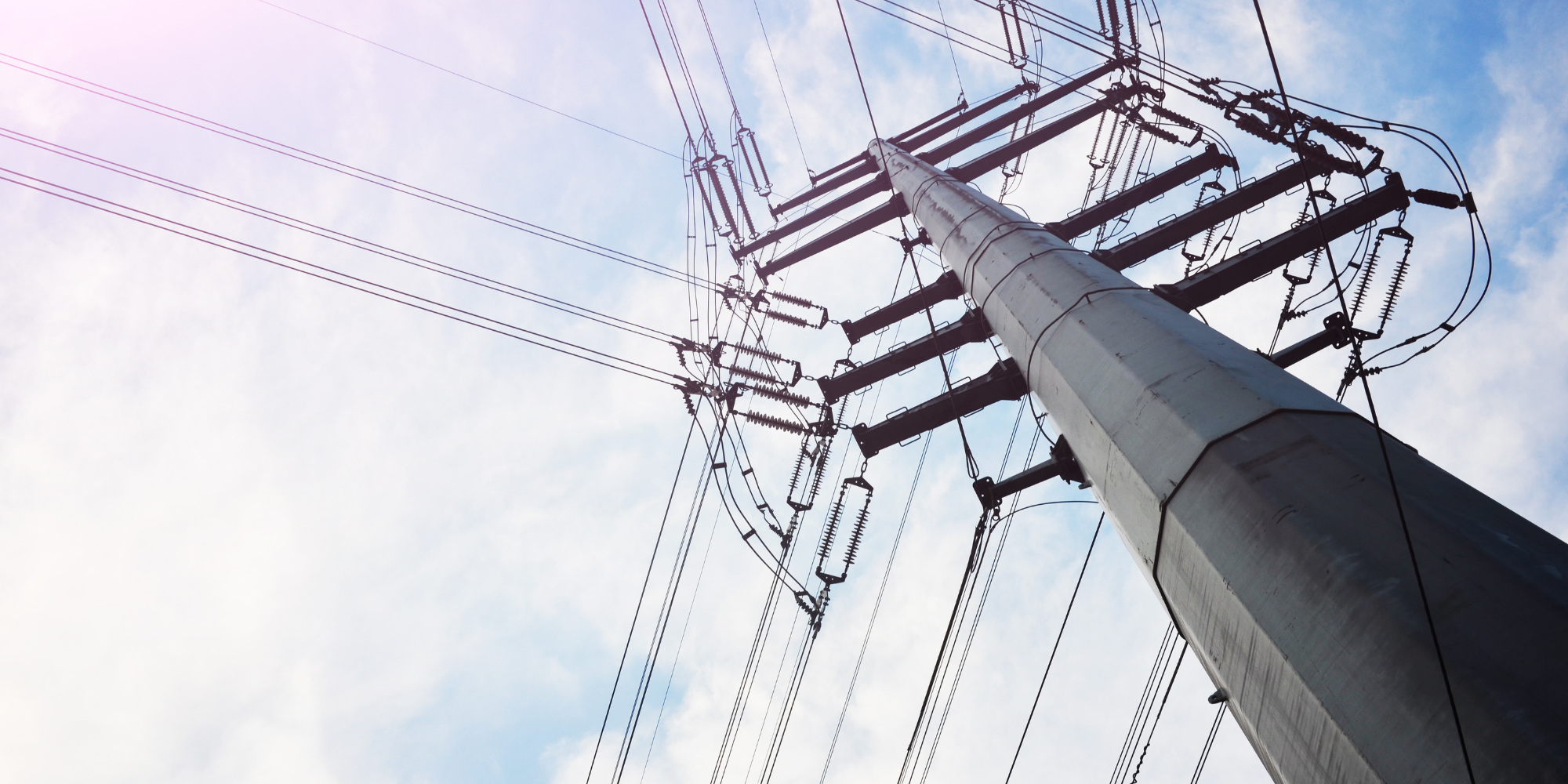


At Sodales, we have years of experience working within the utilities sector. This has given us insight into their critical business processes, industry best practices, and how to effectively transition them into a digitized environment. We are proud to have worked with industry leaders within the utilities sector including Hydro One, Toronto Hydro, Puget Sound Energy, Ohio National Grid, Spire Energy, Pacific Gas and Electric (PG&E) and more.
Using Sodales for Enterprise Health, Safety and Employee Relations, the utilities sector can rise to the challenges facing their industry and meet their compliance goals and sustainability requirements. In this blog post we’re sharing our years of industry experience and expertise to help unpack three specific pain points this highly regulated and unionized industry is facing and discuss how our solution can alleviate them.
The utilities sector is highly unionized, in fact, they are one of the most unionized industries. According to the U.S Bureau of Labor Statistics in 2021, 19.7 percent of the employees in the utilities sector were members of unions, and 20.9 percent of them were represented by unions.
Unions present complications for organizations within the utilities sector as management must confer with the union and comply with the corresponding collective bargaining agreements (CBAs) for handling grievances and determining policies. With multiple different unions and CBAs within one organization, this can become overwhelming and difficult for Human Resources (HR) and management to keep track of. Additionally, the outdated paper-based and manual systems that many organizations currently have in place are not equipped to efficiently handle the complex rules and regulations set forth by regulatory bodies and employee unions. With high levels of unionization, combined with outdated systems, the risk of poorly tracked compliance, costly mistakes, and potential legal issues is considerably increased.
So how does Sodales’ Grievance Management module solve this problem? Our agile solution for grievance management provides a standardized workflow for filing and handling grievances. Sodales simplifies the process for employees, HR managers and supervisors by offering union specific discipline processes. Users can include information about the nature of the grievance from a simplified drop-down menu and select pre-filled options that are relevant to utility organizations, including policy and procedures, benefits, compensation, performance appraisals, hours of work and overtime, and more. HR managers can track all the steps throughout the entire lifecycle of the process and record the outcomes of complaints. Additionally, supervisors have the ability to create disciplinary actions and maintain employee records.
Our solution is able to process critical information, creating a transparent work environment, and eliminating the need for outdated spreadsheets and paper-based methods for tracking and reporting. With Sodales, the utilities sector can feel confident working with unions and regulatory bodies, without the risk of legal issues and expensive mistakes.
The utilities sector, among many others are facing an increasing amount of pressure when it comes to managing sustainability requirements. There is pressure from both the government and the public for utilities to provide clean energy, move to more renewable sources, and reduce carbon emissions. Additionally, they are facing an increase in unprecedented weather events caused by climate change resulting in a higher demand for workers to be resilient and reliable. A 2021 article by Forbes sites increased government regulations, increasing consumer and shareholder demand and the decreasing cost of renewable energy as key factors accelerating the drive toward sustainability for the energy and utilities sectors.
Using Sodales’ various tools for environmental safety, organizations can move out of a reactive cycle, and into a proactive working culture that prioritizes improved environmental practices – ultimately contributing to improved sustainability. This includes features and modules such as hazard and risk assessments, site safety inspections, checklists and audits, environmental incidents reporting and assessments, pre-job safety talks and job site audits and more.
There is also heightened pressure on the utilities sector to improve their people sustainability. This means treating employees responsibly and equally, nurturing diversity, and protecting people’s mental and physical well-being. Utilities represents one of the least diverse industries in the US today, with only about 20 percent of workers being women, according to a 2020 US Bureau of Labor Statistics Survey. In order to meet sustainability requirements, utilities will need to look to new solutions to improve their reporting, tracking and overall transparency. Keep reading to learn about how Sodales is answering this call to the people sustainability framework and enabling utilities to meet the growing pressures they are facing.
Sodales supports organizations with people sustainability by improving employee experience and dramatically transforming their approach to health and safety. According to the Deloitte HCT 2017 survey, 79 percent of respondents in the power and utilities sectors say that employee experience is a concern for them. The utilities sector also has high incident rates, as they maintain facilities and infrastructure that transmit high voltage electricity and often work with potentially dangerous equipment, such as hazardous waste, chemicals, incinerators and more.
According to UNEP (United Nations Environment Programme) some of the biggest health and safety concerns for the utilities sector include fatal and non-fatal incidents caused by lack of proper procedures, failure to follow procedures, inadequate risk assessments, poor risk management and incidents and injuries which could be prevented with relevant training, information and education of employees.
Let’s look a little deeper at how Sodales is helping solve these sustainability pressures. From hazard and risk assessments to incident management, Sodales offers organizations a comprehensive solution to proactively manage health and safety which contributes to enhanced people sustainability. Using Sodales, organizations can prevent fatal and non-fatal incidents and accidents through tracking important metrics and KPIs so employers can identify repeat offenders and reevaluate their strategies as needed.
Using our incident management module, incidents move through transparent process flows that keep supervisors and safety teams informed throughout every step of the process. Through our extensive experience working with the utilities industry, we understand that organizations are looking for an intuitive resource to submit incident reports for incidents such as employee injuries, vehicle accidents, chemical spills, equipment incidents and more. That’s why we offer pre-filled industry content to further simplify the process for your organization. With our incident management module, the utilities sector is empowered with the ability to conduct investigative analysis and corrective actions. This enables them to close gaps, foster accountability and create a robust and proactive health and safety strategy.
From the water that comes out of our taps to the hydro that powers our homes, the utilities sector has a far-reaching impact on our daily lives. Utilities provides essential services to the public and as such, must be able to reach and attain their staffing commitments to ensure infrastructure and services are running functionally. Meeting these staffing commitments becomes difficult in utilities because workers, like electricians, engineers, etc. have highly specialized skills. According to Deloitte, this is being further exasperated by advances in smart grid, distributed generation, microgrids and energy storage necessitating a new talent profile that requires further specialization and knowledge.
As a highly unionized industry, often positions are filled through a process called job bidding, meaning current employees who have the necessary abilities and knowledge for the vacant position are allowed to bid for it. Job bidding in utilities is complicated as their rules are often based on not only collective bargaining agreements but also on other critical factors like seniority, region, and location. Sodales’ job bidding module can accommodate these complicated requirements by allowing for job bidding templates to be set up based on both seniority rules and CBA rules. Sodales’ job bidding module enables complete life-cycle support for defining job bidding rules, bid posting notifications, open bid timelines, bid sheets, bid lists, bid status rules, and issuance of offer letters for winning bids. This means organizations can abandon outdated methods of pinning job posts to bulletin boards and waiting for paperwork, and embrace an agile and efficient way to recruit internal candidates.
At Sodales we are passionate about sharing our industry expertise and experience working with the utilities sector to help organizations rise to meet increasing pressure and expectations. With Sodales’ one-platform-approach to health, safety and employee relations, utility organizations can be equipped to handle high levels of unionization, meet increasing sustainability requirements, and fulfill complicated staffing commitments. To learn more about any of the features or modules discussed in this blog post, request an industry specific demonstration.